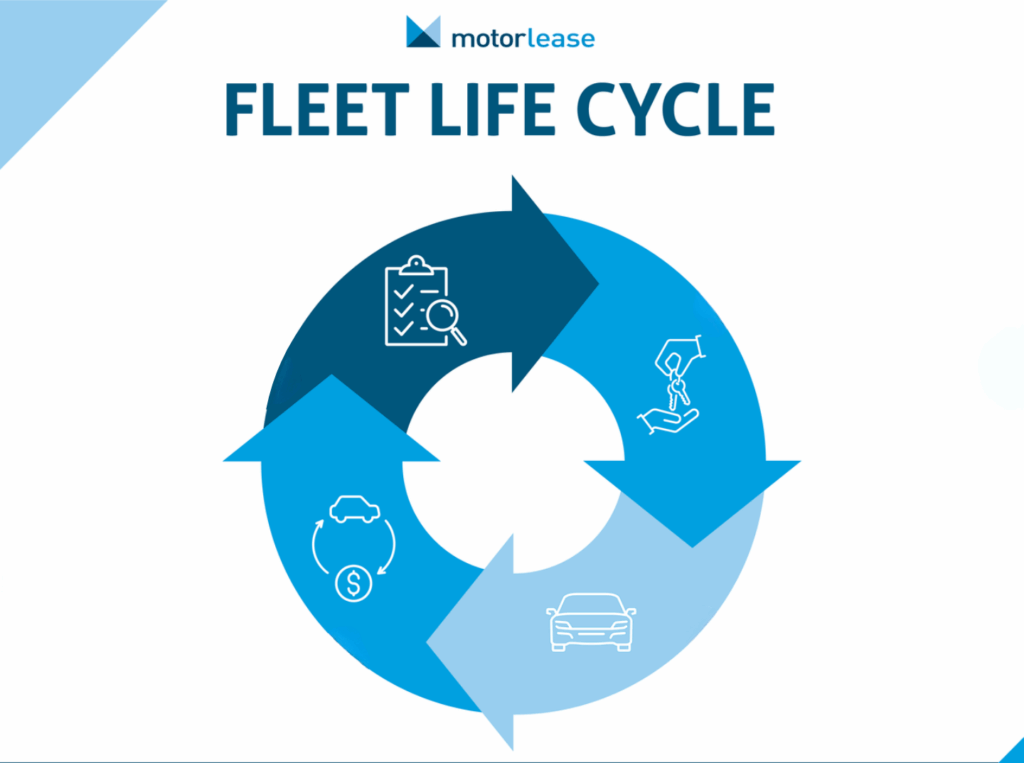For many fleet-operating businesses, vehicles are often seen as assets on a balance sheet, simply tools to get people from point A to B. But there’s a less visible engine that drives fleet success: the quality of the customer experience behind those vehicles.
In today’s high-stakes business climate, where downtime equals lost revenue and driver satisfaction affects retention, customer experience in fleet management has quietly become one of the most important levers for growth. And one of the most overlooked.
“We’re far past the point where price alone should drive the decision,” says Gregg Cogswell, AVP of Customer Experience at Motorlease. “If you’re not evaluating the support, responsiveness, and alignment of your fleet provider, you’re leaving money and trust on the table.”
Let’s explore why that is. 
The Shift from Cost-First to Service-First Thinking
Ten years ago, fleet decisions were largely transactional. Businesses compared quotes, calculated vehicle costs, and made selections based on bottom-line pricing.
Today, leaders are recognizing that the real cost of managing a fleet goes far beyond what’s on the invoice. It includes:
- Time lost to maintenance delays or admin bottlenecks
- Risk introduced by poor vehicle planning or inconsistent service
- Burnout from internal teams overloaded with fleet-related tasks
- Missed opportunities when drivers can’t operate at full capacity
“Fleet managers need more than vehicles,” Gregg notes. “They need a partner who understands their business, anticipates needs, and delivers fast, tailored solutions.”
This is the new standard. And it’s changing how forward-thinking companies evaluate fleet providers.
Customized Service As a Strategic Advantage
Every fleet is different. A pharmaceutical company with drivers in multiple states faces very different challenges than a construction firm running pickup trucks and service vans in a local radius.
Yet many providers still offer standard lease terms, inflexible maintenance plans, or busy call centers. That one-size-fits-all approach can create more friction than it solves.
Customization, on the other hand, enables:
- Smarter vehicle selection based on use case, geography, and goals
- Proactive planning to replace vehicles
- Maintenance strategies that balance uptime, safety, and budget
- Administrative relief in areas like tolls, registration, and personal use reporting
“Customization isn’t a luxury anymore,” says Gregg. “It’s a business imperative. If your fleet provider doesn’t adjust to your world, you’ll be the one absorbing the cost.”
Responsiveness Is No Longer Optional
Speed of service has become a key differentiator across all industries, and fleet management is no exception. Whether it’s a title issue holding up delivery, a driver waiting on a replacement vehicle, or an urgent question about compliance, businesses need answers fast. Not tomorrow. Not after waiting on a help ticket.
“Responsiveness is now part of the ROI equation,” Gregg explains. “If a delay costs your team a day of productivity or forces a missed client visit, that hits your bottom line directly.”
A true service partner ensures that:
- Drivers have direct access to help
- Requests don’t get lost in call centers or generic queues
- Service issues are resolved quickly, with accountability
- Recommendations are made in advance, not after a problem
Trust: The Cornerstone of a Long-Term Fleet Strategy
In today’s world of rising costs, unpredictable availability, and shifting regulations, trust has become more valuable than any contract clause.
For a midsize business without the internal bandwidth to monitor every vehicle detail, a fleet partner must act as an extension of their team: guiding decisions, flagging risks, and being transparent about what’s working and what isn’t.
“A good partner tells you the truth, even when it’s inconvenient,” Gregg says. “You shouldn’t have to chase down updates or wonder if you’re getting the best deal.”
That trust pays off. It empowers business leaders to:
- Plan confidently for growth
- Avoid unexpected costs
- Ensure drivers have a consistent, high-quality experience
- Align fleet operations with broader business goals
Don’t Forget the Drivers
While fleet management often focuses on vehicle strategy and cost efficiency, it’s the drivers who experience that strategy firsthand, and their satisfaction matters more than ever.
In industries grappling with labor shortages and retention challenges, driver experience has become a critical component of employee engagement.
Consider:
- Are your drivers operating safe, reliable vehicles?
- Can they get help when they need it without added friction?
- Do they feel supported and empowered—or frustrated and ignored?
“When drivers feel like they matter, it reflects in how they treat their job, the clients they serve, and the brand they represent,” Gregg says. “It’s not just about logistics. It’s about people.”
How to Evaluate a Fleet Partner Today
If you’re reassessing your fleet strategy, or simply want to ensure your current provider is up to the task, here are five areas to consider:
- Service Model: Is support personal, consistent, and fast? Or are you stuck in a call center loop?
- Customization: Does the provider build plans that align with your specific needs and operating model?
- Responsiveness: How quickly can they solve urgent problems—and how often do they anticipate them before they arise?
- Driver Experience: Are your drivers supported and productive? Or are you hearing complaints and seeing costly downtime?
- Trust & Transparency: Can you rely on the provider to give honest advice, act proactively, and prioritize your success?
Final Thought: Experience Is the Hidden Growth Lever
While vehicle pricing and technology get most of the attention, customer experience is often the deciding factor in whether a fleet strategy succeeds or stalls. It’s the difference between reactive and proactive. Between confusion and clarity. Between constant frustration and long-term momentum.
“The companies that treat customer experience as a growth strategy are the ones that will succeed in this market,” says Gregg. “Because when your fleet runs smoothly, your whole business runs smoother.”
See how a service-first fleet strategy can boost uptime, retention, and profitability schedule a free Fleet Assessment with Motorlease.












